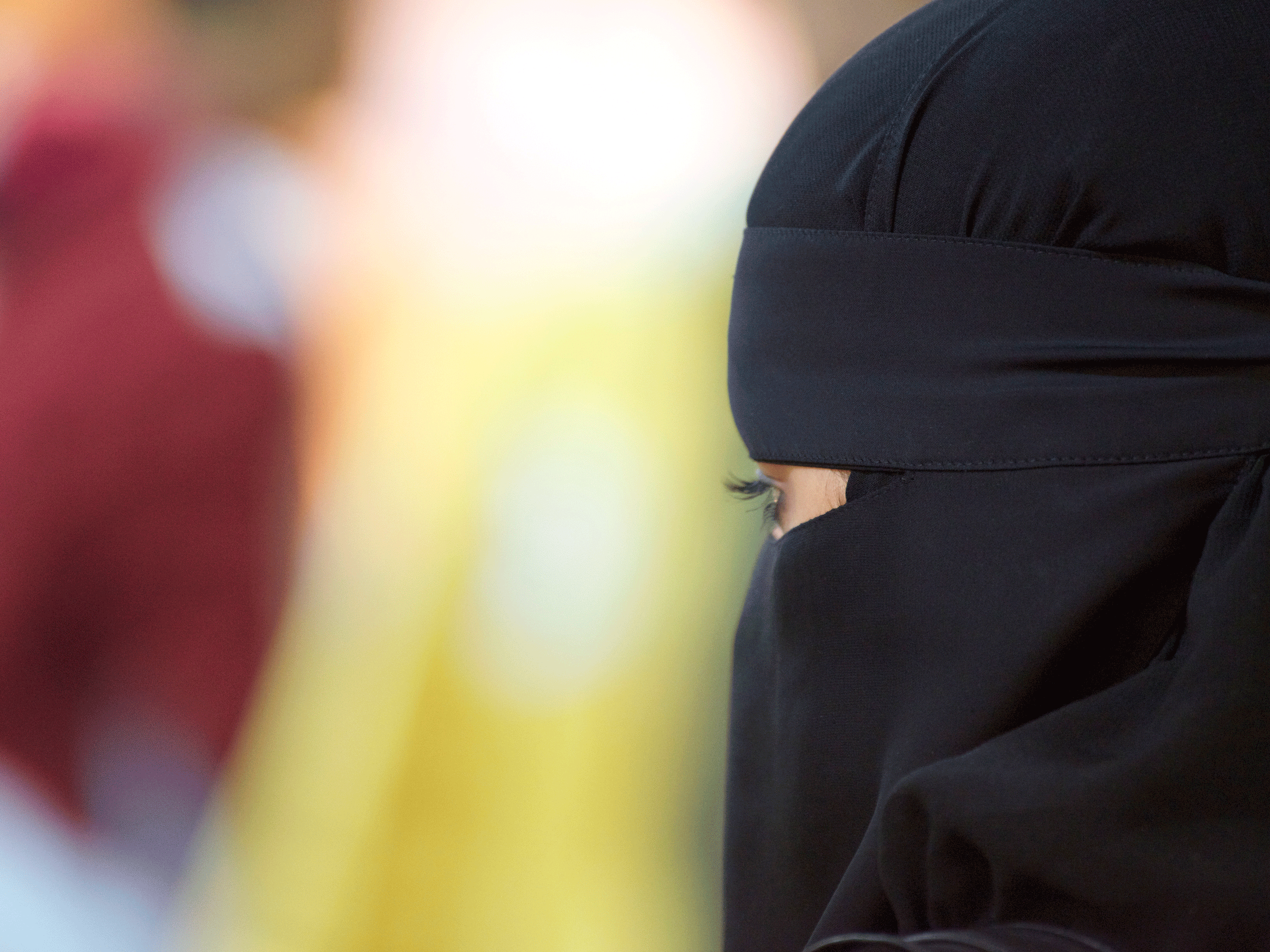Quebec bans Muslim women from wearing face veils on public transport
Canadian province votes in favour of prohibition against niqabs, burqas and hijabs

Your support helps us to tell the story
From reproductive rights to climate change to Big Tech, The Independent is on the ground when the story is developing. Whether it's investigating the financials of Elon Musk's pro-Trump PAC or producing our latest documentary, 'The A Word', which shines a light on the American women fighting for reproductive rights, we know how important it is to parse out the facts from the messaging.
At such a critical moment in US history, we need reporters on the ground. Your donation allows us to keep sending journalists to speak to both sides of the story.
The Independent is trusted by Americans across the entire political spectrum. And unlike many other quality news outlets, we choose not to lock Americans out of our reporting and analysis with paywalls. We believe quality journalism should be available to everyone, paid for by those who can afford it.
Your support makes all the difference.Quebec will ban face coverings for people giving or receiving provincial government services under a law passed on Wednesday that rights groups have criticised as marginalising Muslim women in the mainly French-speaking Canadian province.
While the law, which takes effect by 1 July 2018, does not specify which face coverings are prohibited, the debate has largely focused on the niqab worn by some Muslim women, which covers everything but the eyes.
People affected by the law would include public-sector employees such as teachers, police officers, hospital and daycare workers.
Like France, which passed a ban on veils, crosses and other religious symbols in schools in 2004, Quebec has struggled to reconcile its secular identity with a growing Muslim population, many of them North African emigrants.
“We are just saying that for reasons linked to communication, identification and safety, public services should be given and received with an open face,” Quebec Premier Philippe Couillard told reporters in the province's National Assembly.
“We are in a free and democratic society. You speak to me, I should see your face, and you should see mine. It's as simple as that,” he said.
The National Council of Canadian Muslims said it was deeply concerned by the law's passage and was looking at its legal options.
“This legislation is an unjustified infringement of religious freedoms,” said executive director Ihsaan Gardee.
The law allows for exemptions under certain circumstances, although it did not provide details. Regulations setting out how the new law will be enforced are yet to come.
Asked in the federal parliament whether he would challenge the law, Canadian Prime Minister Justin Trudeau, who represents a Montreal district, said he would continue to ensure all Canadians are protected by the country's charter of rights and freedoms, “while respecting the choices that different legislative assemblies can make.”
France, Belgium, the Netherlands, Bulgaria and the German state of Bavaria have imposed restrictions on the wearing of full-face veils in public places, with Denmark on track to set its own ban.
Right-wing extremist groups and some local French-speaking media in recent years have targeted Quebec's Muslims as part of a broader debate on the accommodation of religious and cultural minorities in the province.
Incidents of Islamophobia have increased in Quebec in recent years. In January, six people were killed in a shooting at a Quebec City mosque. A French-Canadian university student has been charged as the sole suspect.
Reuters
Join our commenting forum
Join thought-provoking conversations, follow other Independent readers and see their replies
Comments